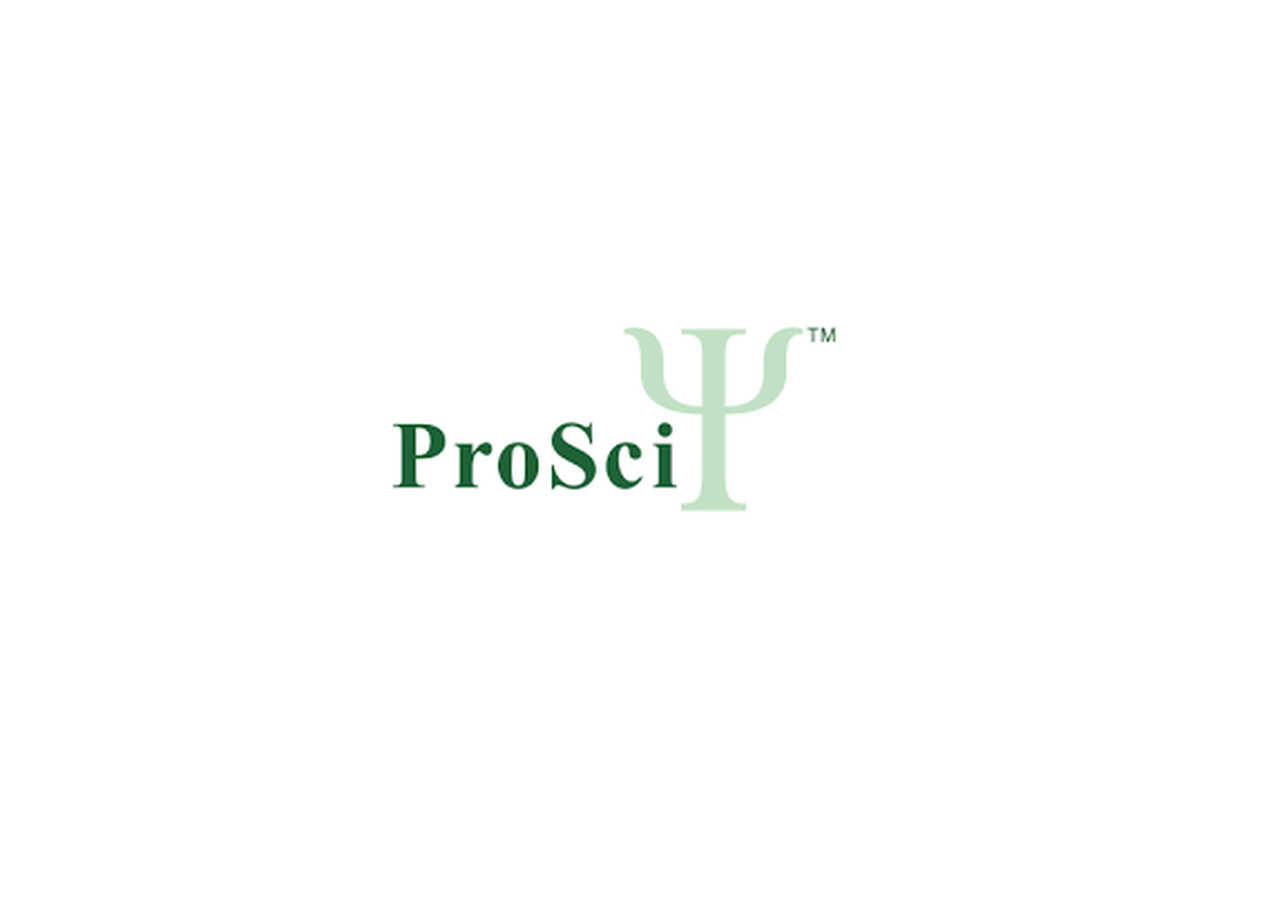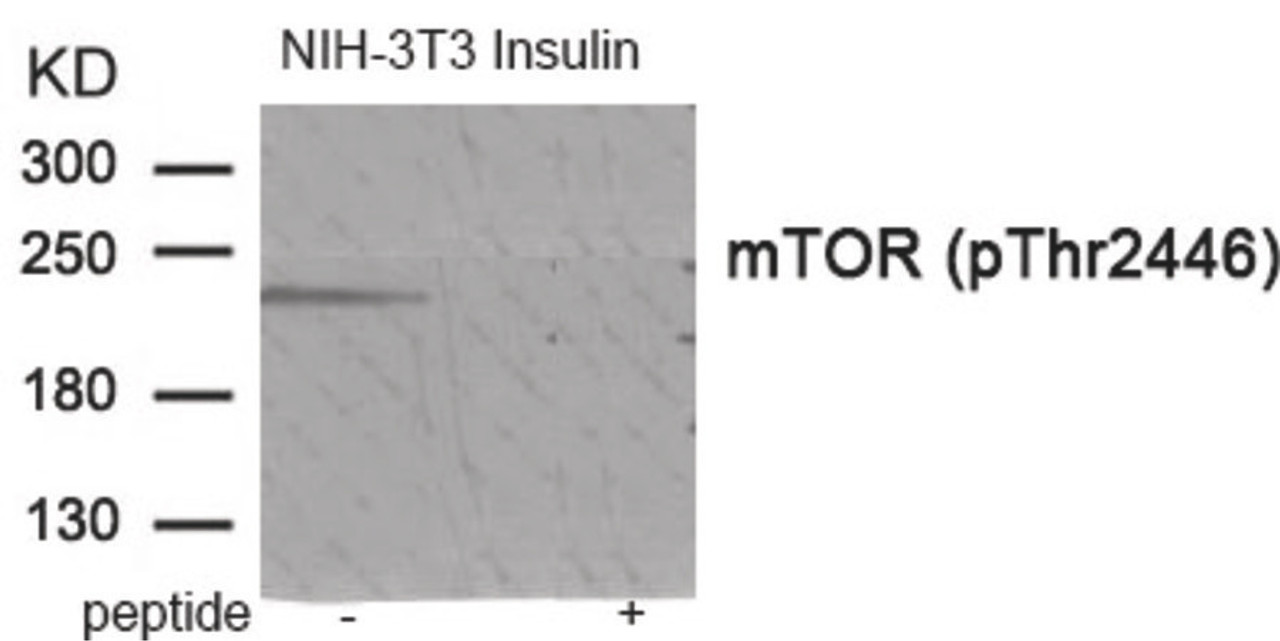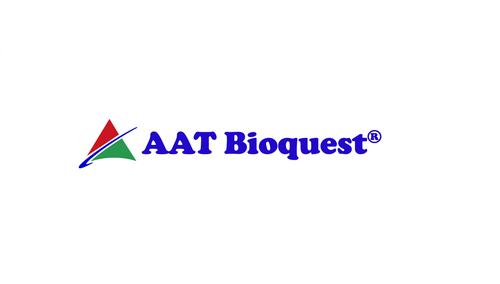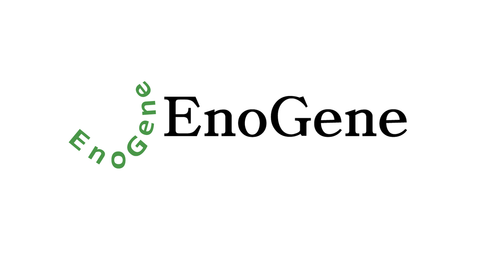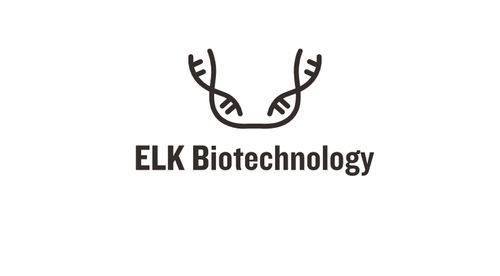Product Description
mTOR (phospho Thr2446) Antibody | 79-967 | ProSci
Host: Rabbit
Reactivity: Human, Mouse, Rat
Homology: N/A
Immunogen: mTOR (phospho Thr2446) antibody was raised against a peptide sequence around phosphorylation site of threonine2446 (T-R-T (p) -D-S) derived from Human mTOR .
Research Area: Phospho-Specific
Tested Application: WB
Application: Western Blot: 1:500~1:1000
Specificiy: The antibody detects endogenous level of mTOR only when phosphorylated at threonine 2446.
Positive Control 1: N/A
Positive Control 2: N/A
Positive Control 3: N/A
Positive Control 4: N/A
Positive Control 5: N/A
Positive Control 6: N/A
Molecular Weight: 220 kDa
Validation: N/A
Isoform: N/A
Purification: Antibodies were purified by affinity-chromatography using epitope-specific peptide.
Clonality: Polyclonal
Clone: N/A
Isotype: IgG
Conjugate: Unconjugated
Physical State: Liquid
Buffer: Antibody supplied in phosphate buffered saline (without Mg2+ and Ca2+) , pH 7.4, 150mM NaCl, 0.02% sodium azide and 50% glycerol.
Concentration: 1 mg/mL
Storage Condition: Store antibody at -20˚C for up to one year.
Alternate Name: FRAP, FRAP1, FRAP2, RAFT1, Rapamycin target protein
User Note: N/A
BACKGROUND: Kinase subunit of both mTORC1 and mTORC2, which regulate cell growth and survival in response to nutrient and hormonal signals. mTORC1 is activated in response to growth factors or amino-acids. Amino-acid-signaling to mTORC1 is mediated by Rag GTPases, which cause amino-acid-induced relocalization of mTOR within the endomembrane system. Growth factor-stimulated mTORC1 activation involves AKT1-mediated phosphorylation of TSC1-TSC2, which leads to the activation of the RHEB GTPase that potently activates the protein kinase activity of mTORC1. Activated mTORC1 up-regulates protein synthesis by phosphorylating key regulators of mRNA translation and ribosome synthesis. mTORC1 phosphorylates EIF4EBP1 and releases it from inhibiting the elongation initiation factor 4E (eiF4E) . mTORC1 phosphorylates and activates S6K1 at 'Thr-421', which then promotes protein synthesis by phosphorylating PDCD4 and targeting it for degradation. mTORC2 is also activated by growth factors, but seems to be nutrient-insensitive. mTORC2 seems to function upstream of Rho GTPases to regulate the actin cytoskeleton, probably by activating one or more Rho-type guanine nucleotide exchange factors. mTORC2 promotes the serum-induced formation of stress-fibers or F-actin. mTORC2 plays a critical role in AKT1 'Ser-473' phosphorylation, which may facilitate the phosphorylation of the activation loop of AKT1 on 'Thr-308' by PDK1 which is a prerequisite for full activation. mTORC2 regulates the phosphorylation of SGK1 at 'Ser-422'. mTORC2 also modulates the phosphorylation of PRKCA on 'Ser-657'.
 Euro
Euro
 USD
USD
 British Pound
British Pound
 NULL
NULL

